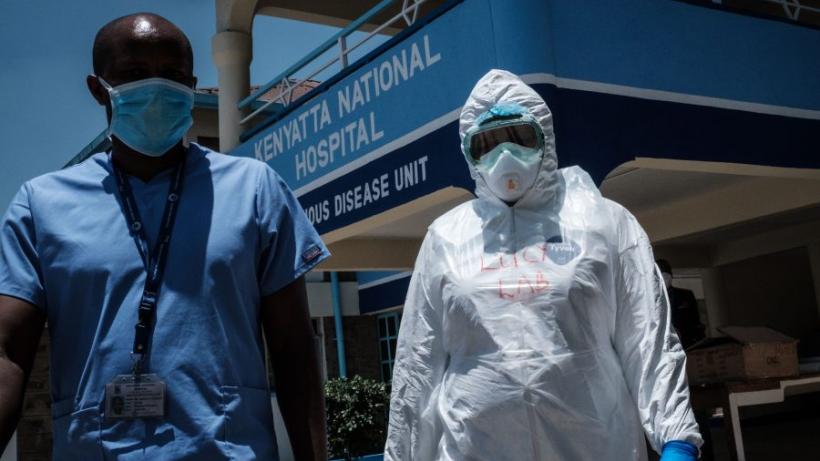
Impact of COVID-19: Health and community
COVID-19 has upended healthcare systems and derailed non-COVID-19 related treatments. Facing this, traditional and religious leaders, as well as community health workers, are playing a pivotal role.
The COVID-19 pandemic is testing healthcare capacity the world over. With poorer facilities and fewer resources across the developing world, public health measures remain critical to ensuring health systems do not become overwhelmed. Survey results have shown that many in Africa rapidly started wearing masks and observing social distancing following the outbreak. Pandemic-induced pressures have spilled over to other areas of healthcare, jeopardising access to treatment for non-COVID-19 related illnesses. Throughout these challenges, community members have been vital in supporting and delivering the COVID-19 response.
In September, the epicentre of the pandemic moved to Latin America, alongside a notable surge in India. In Africa, the WHO has cautiously stated that the outbreak may have passed its peak. Decreases in South Africa, Egypt and Nigeria, have countered upticks elsewhere, such as in Uganda and Rwanda. However, changes and variations in testing capacity and strategy, as well as delays in reporting data, may be masking the true scale. In terms of fatalities, reported death rates in Africa remain lower than elsewhere.
Citizen response: adherence to safety procedures and awareness
The observation of public health measures, such as social distancing and wearing masks, generally appeared high over the past six months. In Siaya County, Kenya, 85% of households reported wearing a face mask in August, compared to just 9% in April. In Senegal, 39% of respondents stated they would wear a mask in April despite them not being recommended at the time. Of those same respondents in Senegal, 90% had stopped attending mosque. Some adherence to social distancing may be beginning to fall, with fewer respondents distancing themselves in markets in August in Sierra Leone compared to earlier months. Many still fear contracting the disease – reported by 41% and 70% of respondents in Cote d’Ivoire and Rwanda, respectively. In refugee camps in Bangladesh, research has found a high prevalence of COVID-19 symptoms alongside high levels of knowledge about the disease, but also common attendance at religious and social events.
Externalities and pressures on an overstretched health system
Despite lower COVID-19 fatalities, there are concerns about access and treatment for non-COVID-19 related illnesses. Survey results show 43% of respondents in Colombia, 10% in Ghana, and 8.4% in Burkina Faso all delayed or skipped healthcare visits. Many cite a fear of COVID-19 as the reason, or a lack of capacity at healthcare facilities. Routine immunisations have also been disrupted – such as in Nigeria and Ghana – with the latter seeing a 10% drop in coverage. Local healthcare workers have started making house visits to alleviate this.
Rise of the guardians: Community health workers and religious leaders
Community leaders and workers have been vital in supporting the COVID-19 response. In Nigeria, traditional and religious leaders have been engaged to help sensitise communities on the importance of routine vaccinations. In Angola and Chad, community health workers have been mobilised to spread awareness and relay safety messages, especially since internet penetration, literacy rates, and regular access to television/radio messaging are poor. In Cote d’Ivoire and Kenya, despite the closure of places of worship, religious leaders have helped spread COVID-19 messaging, encourage hand-washing, and social distancing. A similar story is true in Sierra Leone, where Mammy Queens (female leaders) and religious figures were used to spread health messages.
To be kept in mind
Going forward, keeping the spread of infection to a minimum is an important step towards maintaining healthcare capacity and minimising the impact of the pandemic on both lives and livelihoods. To this end, national authorities should continue to encourage low-cost public health interventions and avoid prematurely declaring any victory over the virus. Evidence shows that individuals and communities are dynamic. A strong network and clear messaging can support resilience and adaptability amongst citizens.
This blog is the third part of a series on the different impacts of COVID-19 in developing countries. See the other parts here and here.

